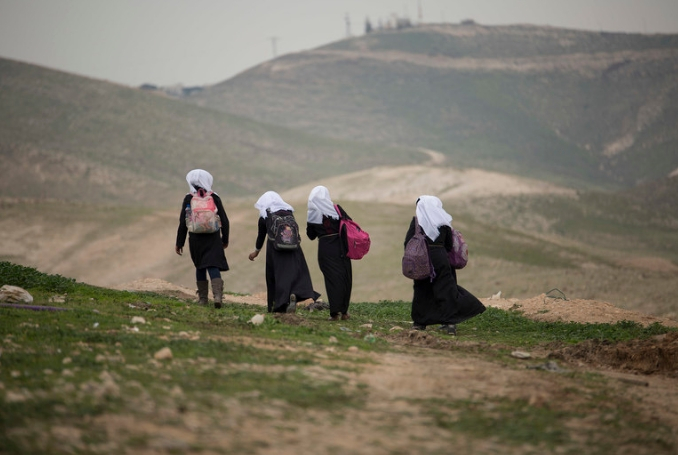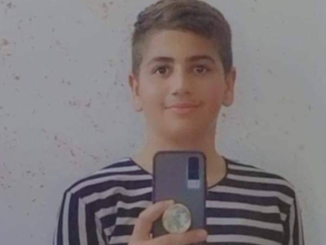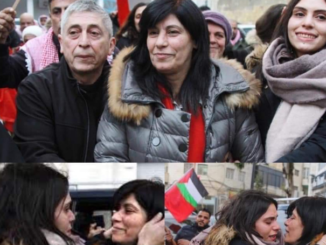
By Ramona Wadi
It is disconcerting that the decision to demolish the village of Khan Al-Ahmar is being tied to the two-state compromise by Palestinian Prime Minister Rami Hamdallah. At a meeting in Ramallah with a delegation from the European Parliament last Monday, Hamdallah declared that Israel’s actions in the occupied Palestinian territories, “particularly at Khan Al-Ahmar village east of Jerusalem, aim to end the two-state solution.”
Timewasting diplomacy such as this recent charade is aiding Israel’s plans to displace all of the Palestinians. There is no longer a two-state “solution”; indeed, there never has been any genuine intention by Israel and its supporters to work towards such an imposition, which would in any case still have placed Palestinians at a disadvantage.
Despite this, the two-state discourse continues to be touted as the “only solution” by the majority of countries, international institutions, and the Palestinian Authority. It’s a purported solution which would ultimately concede the entire territory to Israel, while the international community and the PA belatedly hold meetings to discuss an impossible reversal.
If the PA and the EU were to seek narratives from Khan Al-Ahmar, the two-state compromise would most likely not feature in the community’s concerns. The issue at stake is their displacement from their land, just as all the displaced Palestinians keep that narrative uppermost in their minds. The two-state paradigm does not even accommodate a “solution” for all the Palestinian refugees; their legitimate right of return to their land is off the table forever. Those displaced from Khan Al-Ahmar will be no exception.
Not only is Hamdallah facilitating EU complacency as regards Israel’s ongoing violations against the Palestinian people, but he is also disseminating his agreement in persisting with a flawed hypothesis to the detriment of the Palestinian people, knowing full well that these scheduled meetings do little more than tick diplomatic boxes. Meanwhile, the Palestinians face a constant deterioration of their predicament which is eroded further by the false assumption that diplomacy actually makes a difference. It is important to distinguish between repetitive “two-state solution” statements and the impunity that they hand to Israel on a plate.
Khan Al-Ahmar faces a solitary battle and its residents’ displacement would not change the PA’s tactics. If another community is threatened with displacement, the destruction will also be tied to the alleged elimination of the two-state compromise by Israel. The PA will continue to fail to discuss displacement as a historical and current predicament, just as it fails to illustrate the reality of Palestinians as a perpetually displaced population.
If the Palestinian leadership is willing to reframe displacement as an impediment to the two-state compromise rather than referring to it as a war crime, what incentive is there for the EU, which prioritizes its image and relations with Israel? A cruel spectacle is unfolding that no amount of pleas will change, for the simple reason that the level of complicity of each of the political actors will be safeguarded above anything else.
In the PA’s limited vision, the displaced Palestinian people are secondary. Its prime concern is to maintain the two-state illusion, in conformity with the international community, thus isolating Palestinians from a political process. This amounts to the intentional, international dissociation between Israel’s political violence and Palestinian lives.
History has bequeathed us with enough examples of how Palestinians have been expendable in the colonial process and their current plight is of no significance. There is no desire within the international community to understand the Palestinian trauma, and the PA will not view the correction of such an absence as part of its role, lest it finds itself cornered and having to admit that Palestinian collective memory, in reality, holds more power than the PA’s illusion of leadership and, ironically, authority.
– Ramona Wadi is a staff writer for Middle East Monitor, where this article was originally published. She contributed this article to PalestineChronicle.com.







